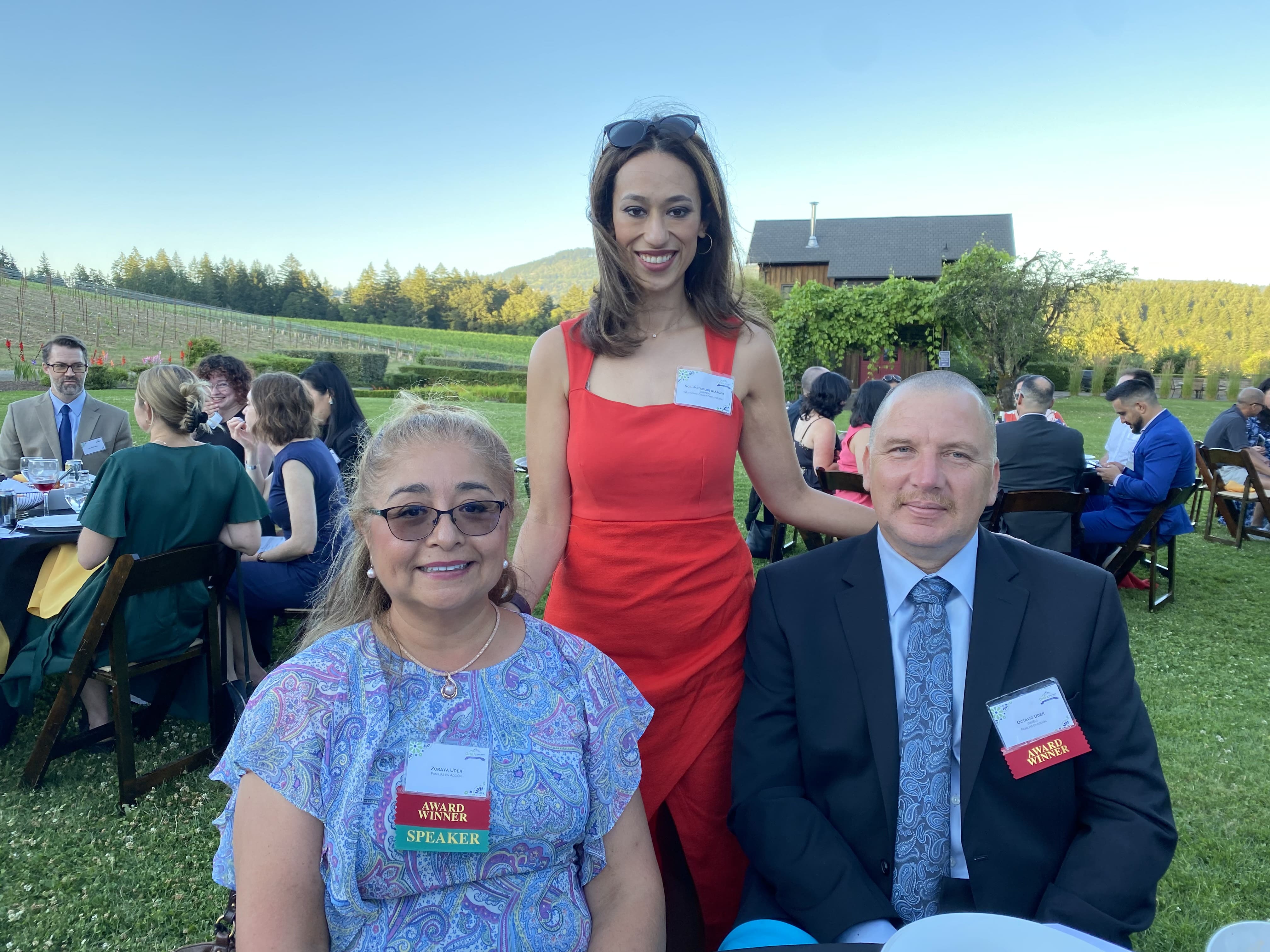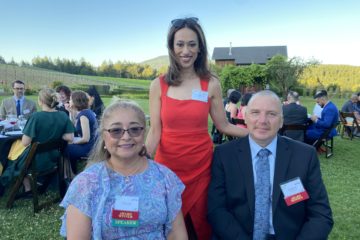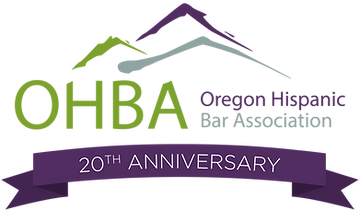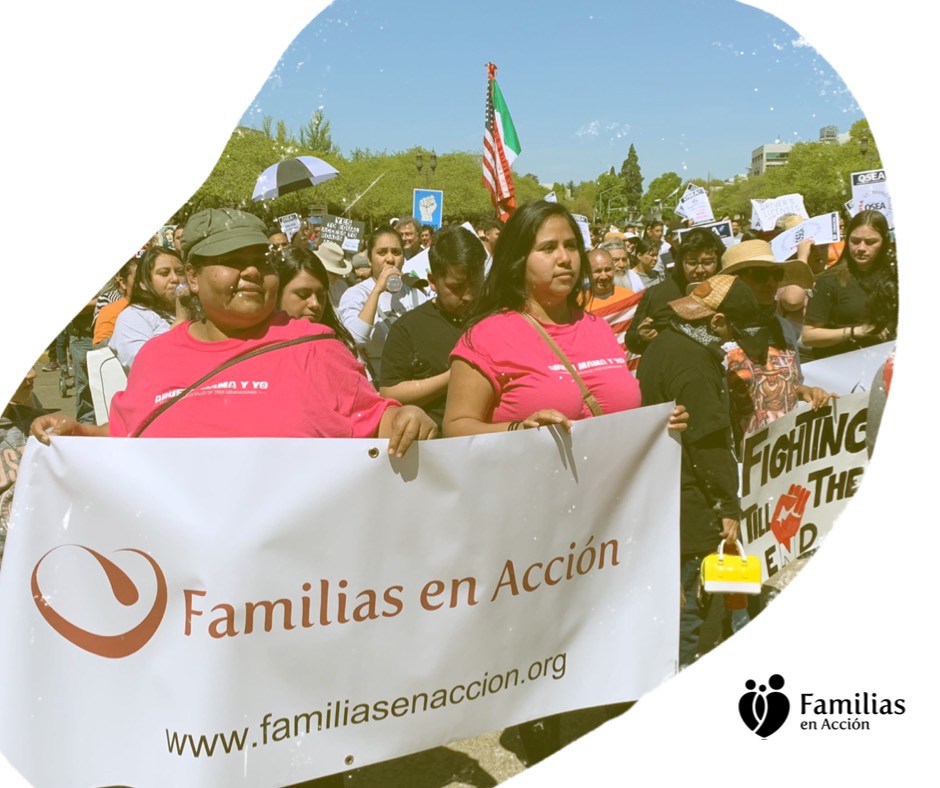La Voz Latina Award 2022
Familias en Acción is honored to be selected as this year’s recipient of the Oregon Hispanic Bar Association’s (OHBA) La Voz Latina Award. Community Health Worker and long-standing member of the Familias team, Zoraya Uder, accepted the award on Familias’ behalf during OHBA’s 20th Anniversary Dinner on July 22, 2022.
The La Voz Latina Award recognizes organizations for their exceptional provision of legal or non-legal direct service to Oregon’s Latinx community and seeks to uplift organizations that enhance opportunities for the Latinx community of Oregon by:
- Empowering members of the Latinx community;
- Providing free or low-cost services to underprivileged members of the Latinx community;
- Creating and expanding opportunities for Latinx youth;
- Advocating for causes that positively impact vulnerable members of the Latinx Community.
Thank you, OHBA, for this honorable award. We are both humbled and excited to be this year’s recipient and to continue providing resources to Latino/x/e communities in Oregon.

Paul J. De Muniz Professionalism Award
Familias is also incredibly proud to announce that our board member, Jacqueline Alarcón, was the recipient of this year’s Paul J. De Muniz Professionalism Award at the OHBA Anniversary Dinner. This award honors individuals who are carrying on Paul J. De Muniz’s legacy – he became the first Latino Chief Justice of the Oregon Supreme Court in 2006 and was also the first Latino member of the Oregon State Bar Board of Bar Examiners. He was the first Hispanic person to be elected to the Oregon Court of Appeals.
Judge Alarcón was recently appointed to the Multnomah Circuit Court, and has over a decade of legal experience representing clients throughout the Portland metropolitan area. Jacqueline is the current Board President of the Multnomah Bar Association and former Board President of Adelante Mujeres and the Oregon Women Lawyers Association. As part of the Latinx community, she has first-hand knowledge of the importance of health issues affecting Latino/e/x communities.
We could not be prouder of our staff, board, and community for all of the work we are doing to help Latino/x/es thrive. We thank the Oregon Hispanic Bar Association for this recognition and look forward to continuing to empower Latino/x/e communities.



